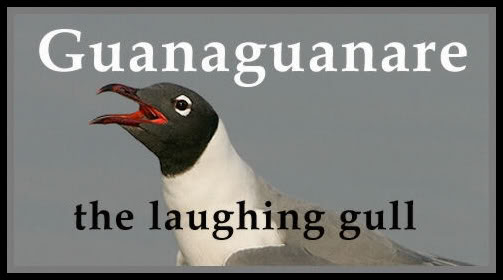 US ready to provide security experts as resident advisors in region.
US ready to provide security experts as resident advisors in region.
Stabroek News | May 29, 2010
US Attorney General Eric Holder says America is ready to provide its federal experts as resident advisors to work with Caribbean agencies, as part of a partnership to improve law enforcement.Guyana's Response:
“…While we are committed to helping you address the pressing needs and challenges, we are eager to focus on long term solutions, now,” he said while delivering the main address at the recently concluded Caribbean-United States Security Cooperation Dialogue." See full text of the address here.
Will Guyana want resident US security advisor?
By Stabroek staff
Stabroek News | Sunday, June 13, 2010
The US Government is willing to make resident security advisors available to Caribbean countries but will Guyana be interested?..............................................................................................................................
"Stabroek News was unable to get a comment from Home Affairs Minister Clement Rohee on the proposal. In a speech at the Washington event last month where US Attorney General Eric Holder made the offer, Rohee had said he welcomed cooperation between the two regions to improve the ability of relevant agencies to respect human rights while executing their duties. Rohee did not specifically address Holder’s offer.
"Some of the key factors responsible for deficiencies in the criminal justice system are outdated models, historical circumstances and a lack of human and material capacities, Rohee had said.
"He had further noted that there is a need for training and advanced technology to overcome this inefficiency and ineffectiveness.
"This collaboration will provide many advantages for the different judiciaries that will be sharing “best practices” with each other, Rohee had stated.
"But one security expert, whom Stabroek News spoke to, felt the US could better serve Caribbean countries by providing training and equipment in the area of security instead of resident advisors.
"The expert questioned the value of having advisors who at the end of their tenure would leave a vacuum behind in many cases.
"Stabroek News had solicited a comment from the expert on Holder’s statement that America is ready to provide federal experts as resident advisors to work with Caribbean agencies, as part of a partnership to improve law enforcement.
"Holder made the offer while addressing security ministers from the Caribbean at a Washington meeting which the US Embassy here had said was a result of talks with President Barack Obama at the Summit of the Americas last year in Trinidad and Tobago.
“…While we are committed to helping you address the pressing needs and challenges, we are eager to focus on long-term solutions, now,” Holder said while delivering the main address at the recently concluded Caribbean-United States Security Cooperation Dialogue.
Alliance for Change leader Raphael Trotman is also not of the view that resident experts are the answer to transnational crimes and he suggested that the option of “visiting experts” might be the road to take.
Collapse
Zeroing on Guyana, the expert said that America’s offer, coming on the heels of the collapse of the $1 billion UK-Funded security sector reform plan is certainly not a partnership that would sit well with Guyana.
“Coming in the wake of the British Security Sector Reform Plan collapse it [the proposal] is not going to work,” the security expert said.
Late last year the Brits had pulled the plug on the security plan as according to them a proposal by the Government of Guyana (GoG) moved away from comprehensive reforms originally requested. The UK had said that the proposal was a “fundamentally different” programme focused on police modernisation instead of wider reforms.
However, the government had said that it was forced to produce its own proposal since the British design, threatened the sovereignty of the country and included management features that seriously compromised Guyana’s ownership of the process. “When our new design re-established ownership that was more consistent with our notions of sovereignty, the plug was pulled,” Head of the Presidential Secretariat Dr Roger Luncheon had said.
“What the Caribbean needs is training for their local personnel,” the expert, who preferred to remain anonymous, said.
He pointed out that the advisor is not going to remain in the post indefinitely and when that person leaves someone else would have to replace them and this in itself would create problems as the new advisor would be coming with his/her own ideas. But if trainers are brought in, when they leave trained personnel would be in place to use their expertise in the local crime fight.
The security expert also pointed out that the Caribbean is in need of equipment and because many are of complex nature it would be a good option to have experts on hand to teach locals how to operate them.
The expert pointed out that there should be some sustainability in the support provided and stressed that the training must not be centralized but should be of a duration that ensures that those trained can become experts and trainers themselves in the field. “We don’t need a two-day seminar or workshop,” the expert said.
Tension with sovereignty
Meanwhile, Trotman said Holder’s proposal could ultimately lead to a tension with sovereignty.
He said such a proposal is even more difficult to accept in the light of the saga that surrounds Jamaican drug kingpin Christopher ‘Dudus’ Coke who is wanted in the US for drug trafficking and other serious crimes. The Jamaican government had initially refused to act on an extradition request from the US as it objected to the manner in which evidence against ‘Dudus’ was gathered as it was not in conformity with the country’s laws. In the end the government gave in and issued an arrest warrant for ‘Dudus’, which subsequently saw over 70 people killed in gun fights between security forces and gunmen close to ‘Dudus’ in his hometown, Tivoli, in Kingston, Jamaica.
According to Trotman, while governments and security forces are going to want the help and assistance to suppress the drug problem they “will naturally be uncomfortable with resident ‘experts’ watching over them.”
However, he said the very serious issues arising from transnational crimes including trafficking in narcotics and weapons that are common to Caricom “and the US should be sufficient to ensure that an arrangement is worked out to ensure non-resident but ‘visiting’ experts [are provided].” He said these experts could ensure that aid is being properly applied and is targeted at the right areas.
“Also, I can envisage a situation in which Caricom states, acting through their law enforcement agencies, can engage experts (drawn from a pre-approved panel) from time to time, and based on the prevailing circumstances and situation, to be in place,” Trotman told Stabroek News.
He said he believed that at the Caricom level and not individually as states, the offer of experts should be accepted “but not in an open-ended and ill-defined way”.
In his presentation Holder had said that a partnership is the key to improving the capacity of law enforcement agencies and the judiciary to effectively investigate and prosecute crimes while respecting human rights. He had stated that the US and the Caribbean share many priorities.
These include securing borders, eliminating gangs and violence, curbing drug trafficking, reducing recidivism and fighting terrorism. Threats such as those listed, Holder had said, burden not only the US and individual law enforcement communities but it also places citizens throughout the Caribbean at risk. The best way to address this risk is through partnership, he added."
"Patria est communis omnium parens" - Our native land is the common parent of us all. Keep it beautiful, make it even more so.
Blessed is all of creation
Blessed be my beautiful people
Blessed be the day of our awakening
Blessed is my country
Blessed are her patient hills.
Mweh ka allay!
Guanaguanare













0 comments:
Post a Comment